8 of The Best Plagiarism Checker Tools (Free and Paid)
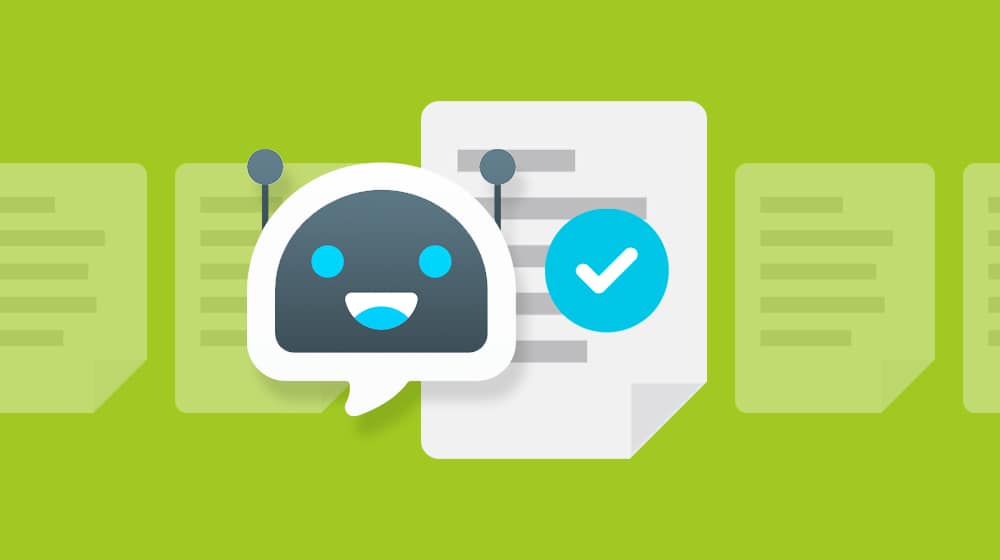
Plagiarism is a big problem pretty much anywhere written and copyrighted content is created.
Businesses running blogs need to be aware of it because any time you pay for content (whether it's from a content mill, a freelancer, an AI, or even a trusted writer), you should be checking to ensure that your content is unique and not stolen.
There are two main reasons for this need:
- The first is that plagiarism may be illegal. Violation of intellectual property rights, theft of content, and just the all-around lack of ethics involved can put your brand in a bad position. Doing it intentionally and willfully can be devastating to your brand reputation. On top of all of that, it can even get you in legal trouble if the rights holder decides to pursue you for the violations.
- The second reason is SEO. Google wants pages to have original content whenever possible. They recognize it's not always going to be possible, of course – if you're writing about a medical condition, there are only so many ways to describe it, so there will be "plagiarism" that isn't really considered plagiarism – but if your whole post is copied word-for-word from another website without properly disclosing it or citing your source, you're going to have a bad time.
Of course, this leads you to a problem: how do you check a piece of content to make sure it's not violating anyone's copyright?
Well, there are a lot of tools out there that offer plagiarism detection tools to greater or lesser degrees. Which ones are any good, which ones should you use, and what limitations might you run into?
Let's dig in and discuss the eight best plagiarism checkers.
 30 Second Summary
30 Second Summary
Plagiarism can negatively affect your brand and SEO. It's illegal, unethical and degrades brand reputation. Google favors unique content and penalizes copied work. Ways to check content for originality include using plagiarism detection tools such as Google Search, Copyscape, Scribbr, Grammarly, Unicheck, Plagiarism Checker X, Pro Writing Aid, and OpenAI's Text Classifier. Each tool has unique features, limitations, and pricing information. Check for potential copyright violations to maintain professional integrity.
#1: Google Search
Type: Free
Consider this. When you want to check a piece of content for plagiarism, you need to have something to compare it to. That means you need to have some body of work that is indexed and available to compare, usually through some kind of algorithm that can account for minor variations in wording, spelling, or phrasing. The larger the index of content to check against, the more effective your plagiarism detector will be.
What larger index could there possibly be than Google? Google has a very robust algorithm that can account for synonyms, different spellings, phrases with missing words, and even ways to avoid all of that using quotation marks and other search operators.
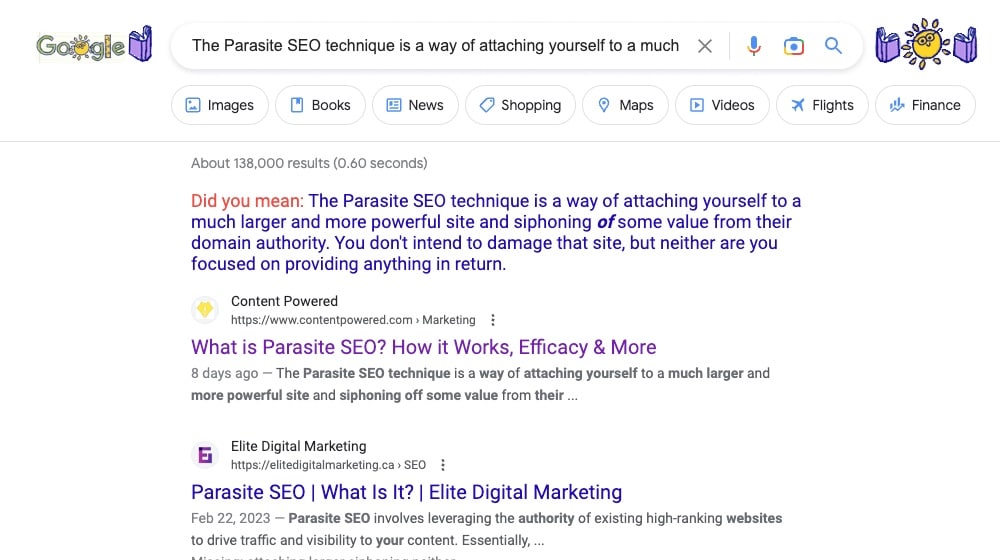
All you need to do is take a few sentences here and there from the post, plug them into Google, and see if they show up elsewhere.
There are, unfortunately, some limitations here.
- Google limits a query to 32 words, so you can't search for anything longer than that. You have to pick and choose passages to search for and will likely have to perform several searches.
- Google is primarily an online index, so if someone is plagiarizing offline content and Google Books doesn't have it, it won't show up.
- It's manual.
You can't check an entire document unless you painstakingly go through it paragraph by paragraph.
If you want to spot-check a few sections of a post, or if someone puts in a quotation but doesn't cite it and you want to find the origin, Google can be a fantastic tool. For robust plagiarism detection, though, you'll want a tool designed for the task. Google is excellent for many things, and many tools are built on Google, but for plagiarism checks, you may need something more.
#2: Copyscape
Type: Paid
Copyscape is, for many, the gold standard of online plagiarism checkers. It operates on a credit system; you give them money, they give you credits for the value of that money, and when you search, it spends that funding. It's pretty cheap – somewhere around 20 cents for 2,000 words – so it's a cheap and effective way to see what hits might come up.
Copyscape will provide a report for you when you check a piece. That report shows content that is copied, from what source, with a link to the source in an iframe that highlights the copied content. It's not perfect – sites that block iframe rendering won't work, and it can't highlight content in PDFs and other files it finds, though it will still show you the links – but it's still pretty good at showing you hits.
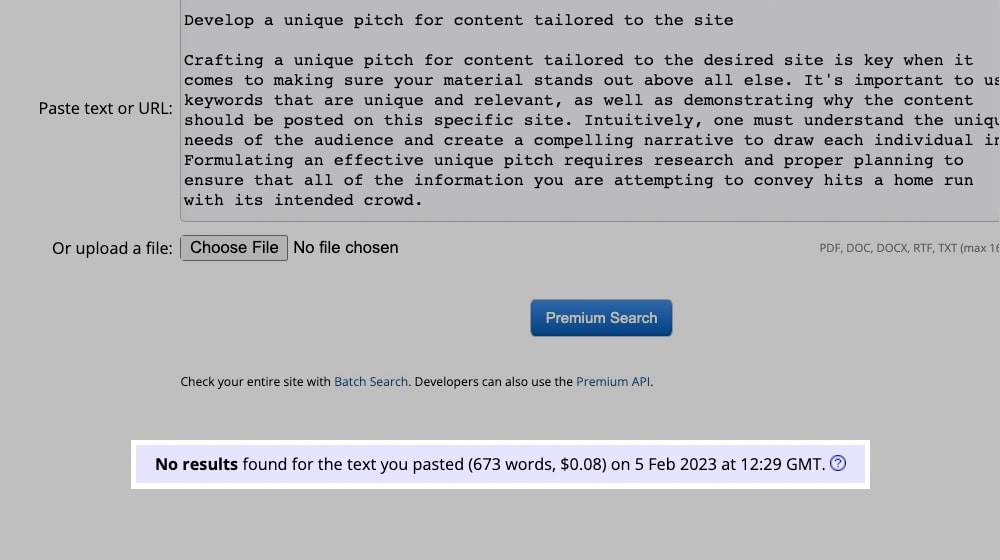
As a tool, Copyscape doesn't judge. If someone includes a quotation in a post, that quotation will likely ping as a hit of plagiarism, even if it's properly citing its sources. You will also see dozens (if not hundreds) of hits for that quotation since innumerable other sites will have quoted it as well. I say this because I've seen people on freelance sites require "zero Copyscape hits," which ignores the idea of citing and quoting experts entirely and really isn't effective in my mind. But to each their own, right?
Copyscape offers other services as well. One is CopySentry, a service that keeps an index of your site and then alerts you if your content is used anywhere else on the web. This could be something benign, like a quote or a syndicated post, or it could be content theft, giving you an opportunity to address the issue.
The tool can be a little tedious to use, and it's relatively limited in scope compared to some of the others on this list, but it's broadly effective. It's also cheap enough to throw $20 at it, try it for a while, and see whether or not it'll work for your needs.
#3: Scribbr
Type: Free and Paid
Scribbr is a tool developed in conjunction with Turnitin, an academic paper plagiarism detector service.
It's more broadly useful than Turnitin alone and has a massive index of content beyond just blog posts that it can check against. Some tests have shown that it can detect more instances of plagiarism than many other platforms and tools.
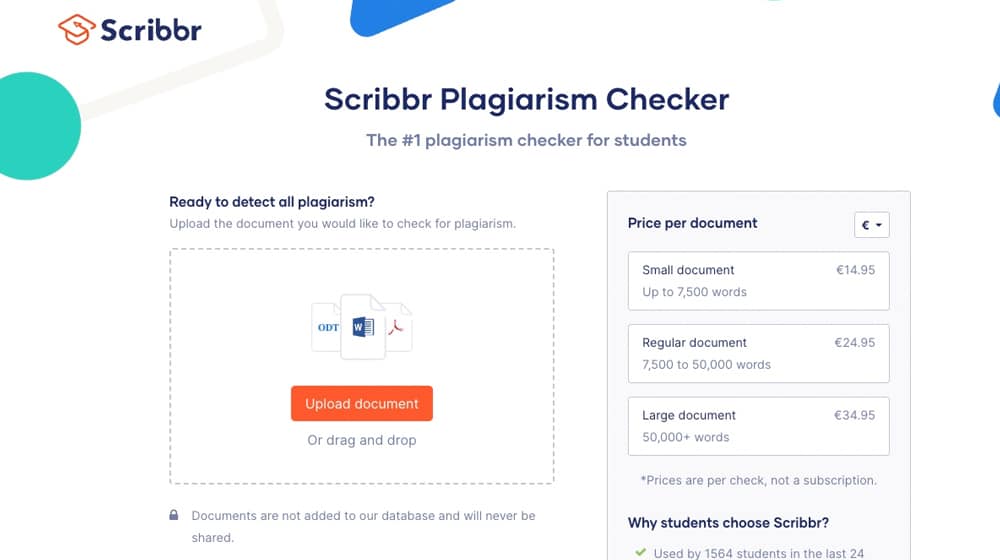
This is a double-edged sword, though. The more flexible and minute the detector, the more likely it is to find false positives or flag more lengthy common words and phrases as plagiarism when they aren't.
Now, I haven't used Scribbr nearly as much as I've used Copyscape, but from what I've experienced, it's a pretty solid option once you get used to what its reports tell you.
The two biggest downsides of Scribbr are that it's mostly focused on academic work (rather than blog posts, marketing, and the like) and that it requires a paid account to access the full report and details you'd want to use to make a total judgment about the content you're reviewing.
It's also quite expensive; $20 for a document of up to 7,500 words is quite steep, and it's a per-document fee. You can somewhat get around this by stacking several blog posts into one document to check it as a whole, but that's clunky.
#4: Grammarly
Type: Paid
Grammarly is the go-to grammar, spelling, and style checker for many writers, but it does more than just grammar. It also has an optional plagiarism checker. It's only available in paid versions of the tool, and Grammarly's paid plans start at $12 per month. On the plus side, there's no per-document or per-word fee; paying that $12 gives you access to all of their tools on an unlimited basis. Plus, with plugins for MS Office, Google Docs, and other programs, it's very flexible.
The plagiarism report isn't perfect. It will flag tiny parts of a sentence and highlight that as a plagiarism hit, so nearly every piece of content that you plug in here will have some sort of false positive. You can see an example of that in this screenshot I took of this article:
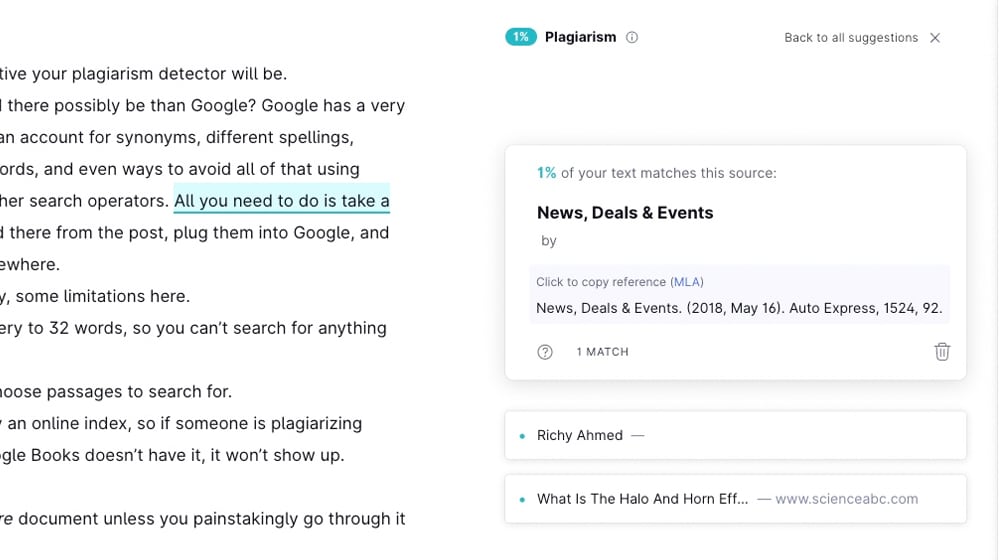
Grammarly has a lot of other issues that I personally have had to grapple with. Their plugins can have issues and need to be restarted occasionally, their checks can add irritation to a workflow, and it can be somewhat inconvenient to toggle between grammar checks and other kinds of checks.
We create blog content that converts - not just for ourselves, but for our clients, too.
We pick blog topics like hedge funds pick stocks. Then, we create articles that are 10x better to earn the top spot.
Content marketing has two ingredients - content and marketing. We've earned our black belts in both.
On the other hand, the flat pricing and the ability to check right from your editor are pretty nice.
There's technically a limit, but it's pretty high; 100 documents or up to 50,000 words in a single day, and 300 documents or up to 150,000 words in a month. It's fairly unlikely that you'll hit that point and still be using Grammarly, if I'm being honest.
Some testing indicates that Grammarly can find sources pretty well, but it can struggle with text that has been edited and isn't an exact match of the passages being spun. That can be a problem if you're trying to check for spun content.
#5: Unicheck
Type: Paid
Unicheck is another academia-oriented plagiarism checker. It ostensibly strives to provide more analysis than other tools that just flag "here's similarity" and leave it at that. If you want that analysis, it might be a good option. It has a Chrome plugin and can allow bulk uploading for high-volume environments, as well.
Like Scribbr and Turnitin, Unicheck is academic, which means it's more focused on things like revising to avoid plagiarism and developing proper citations for intentional quotes, which aren't the same use cases you would have as a business blog. They have a business use case, and they also offer API access, which is fantastic for bulk searches and building custom apps and plugins.
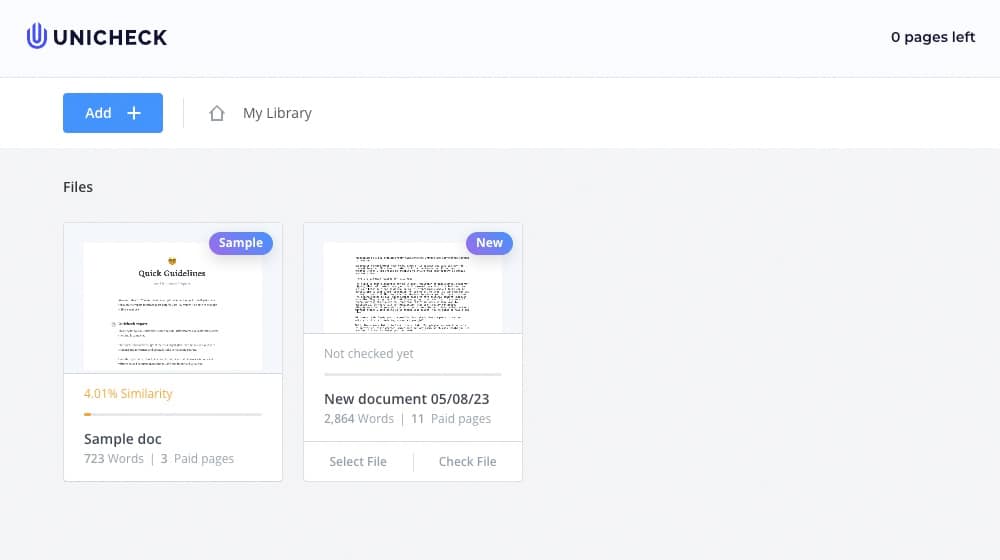
Unicheck has a free plagiarism checker online, but it's only 200 words, so you're pretty unlikely to get a lot of use out of it. Paid plans work on a credit system sort of like Copyscape, with you paying in advance, and pricing is on a sliding "per-page" rate. It starts at $10 for 50 "pages" with one "page" defined at 275 words.
Overly complex if you ask me, but so it goes with these kinds of tools sometimes.
#6: Plagiarism Checker X
Type: Free and Paid
Plagiarism Checker X might sound like a fake tool someone would design for a mockup, but it's real, and it works. It has a database it can scan through and also uses a variety of search engines to check plagiarism and verify passages, similar to how Copyscape works. It shows you content and source side by side for easy comparisons and lets you import a variety of document types to scan. It's also pretty good at checking across languages and checking content in numerous languages if you're in a multilingual environment.
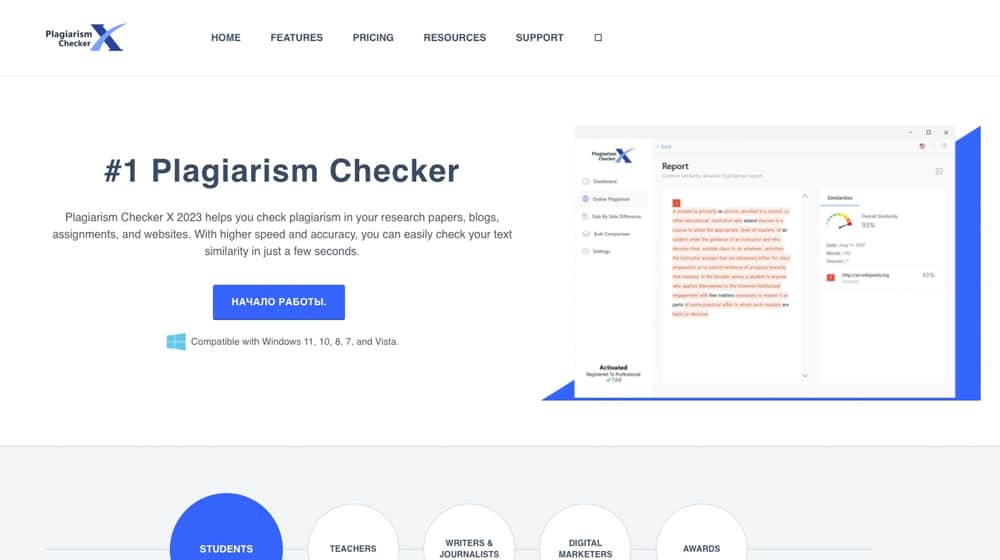
The free version is somewhat limited and has a cap on the number of words it can check each day, though I'm not sure what that limit is. Alternatively, there are two paid versions, both of which are unlimited.
The cheaper one, at $40 for a license, is meant for small business and individual academic use, while the more expensive plan, at $150, adds support for spreadsheets, team members, and branding reports. Both of those are one-time fees, by the way, though they only include one year of maintenance updates.
#7: Pro Writing Aid
Type: Paid
Pro Writing Aid is an AI-driven plagiarism checker tool. However, it is primarily designed to help you polish and improve your writing. I'm mostly ignoring all of those features (that's a discussion for another time) and skipping to the plagiarism-checking features.
First, Pro Writing Aid has a free plan, but it doesn't include plagiarism checking. You have to buy a plan (which is either $30 per month, $120 per year, or $400 for a lifetime license), and then you also have to buy plagiarism checks separately. Those checks are $10 for 10, $40 for 100, $120 for 500, or $200 for 1,000.
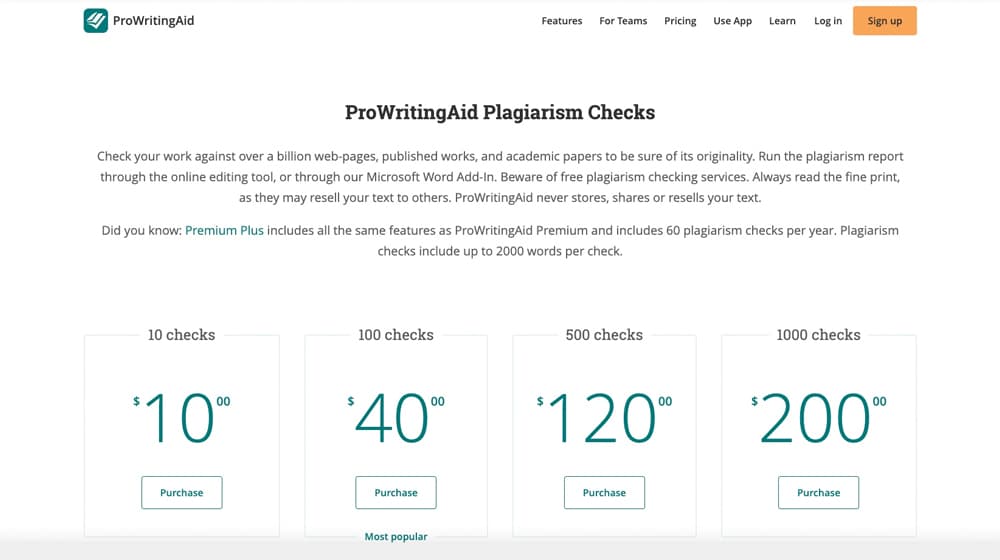
But is it any good?
In my experience, it does a good job of detecting content that was copied and pasted. If the content is spun or rewritten, it doesn't always pick it up as well as something like Copyscape.
The pricing, the hoops to jump through to use it, and not needing its other primary features may be a deal-breaker for most. If you have a need for their other writing aid features, then it might be worth looking into.
#8: OpenAI's Text Classifier
Type: Free
This one isn't quite a plagiarism detector, but it's worth mentioning because it's a big issue, and it's going to be an even bigger issue in the very near future.
Artificial intelligence content generators are, admittedly, fascinating. They generate very good-sounding content, but that content is based on a mathematical algorithm that is itself based on a static index of content that was used to train it.
That means, in a sense, everything generated by AI is a sort of off-kilter plagiarism. Then again, all of human culture is, in a way, plagiarism by that definition, so that alone isn't enough to condemn it.
Knowing whether or not content was generated by AI will be important, as more and more people will try to pass AI off as their own content and try to monetize it. You can bet that companies like Google are investing in detection software for their algorithms, too.
The tricky part is that it is much more challenging than you would think to distinguish between AI-generated content and content just written by unimaginative people. There aren't always obvious "tells," and, unlike AI Art, there aren't immediate signs you can get or a "vibe" that makes it feel off.
The text classifier linked here is provided by the same people who make ChatGPT. It essentially just runs text through its algorithm and determines how likely it is an AI would have made the same choices for the same words and phrases.
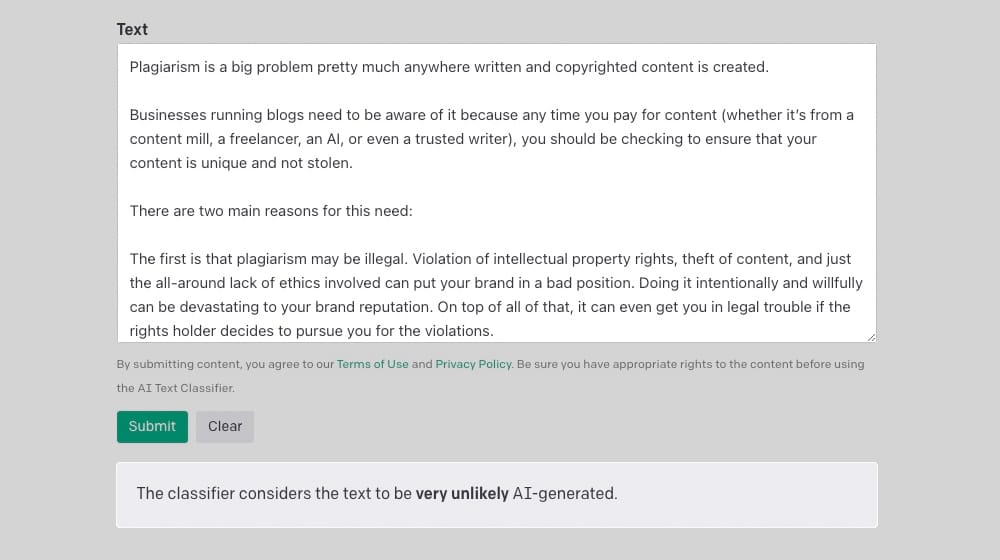
Is it plagiarism to use AI to write content for you? Probably not.
Is human-generated content still much better? Yes, if proper effort is put into it. Should you keep a scan in mind? It can't hurt, especially since it's free. But I wouldn't rely on this as your only method.
Honorable Mentions
The eight tools that I've listed aren't the only plagiarism detection tools out there; there are dozens more.
Here are some of the others that I've used and that didn't make my "top eight" list but still may be worth looking into:
- Copyleaks. Copyleaks is a cloud-based plagiarism detection tool that scans documents for duplicate content across the internet and various databases. As a user, I can simply upload my document, and the tool checks it against billions of web pages, academic journals, and other sources. The results highlight any similar text, allowing me to make necessary changes. Copyleaks offers a free trial with limited scans, while pricing plans vary based on usage - starting from $10.99 for 25 pages per month. It's a little expensive compared to some of the other options on this list.
- Duplichecker. This tool is similar to the others on this list; you upload your document, and it checks it against various databases of content. The results reveal any similar content, making it easy for me to modify my work as needed. Although Duplichecker is free, there are limitations on usage, such as a maximum of 50 checks per day and a 1,000-word limit per search.
- Plagscan. Plagscan offers flexible pricing with pay-as-you-go credits starting at $5.99 for 6,000 words and monthly subscriptions for institutions. Again, this starts to get a bit pricey compared to Copyscape, which costs about $0.62 for 6,000 words.
- iThenticate. Pricing for iThenticate is not publicly disclosed and depends on the user type and requirements, so you'll need to contact them for a quote. This tool is mostly focused on Academic papers. It's also interesting to note that iThenticate is owned by Turnitin, LLC (turnitin.com), which we're about to talk about in a bit.
- Plaigarism-checker.me. This tool uses ProQuest's databases to search billions of web pages. It won't detect stolen content as well as Copyscape, but it's another free tool worth mentioning.
- Quetext, powered by DeepSearch. Quetext offers a limited free version, while the Pro plan costs $9.99 per month or $59.88 per year, providing more features and unlimited checks. The pricing is pretty fair for unlimited searches.
- Turnitin. Like Copyscape, Turnitin has been around forever and is primarily marketed towards teachers and education institutions. They do not sell individual licenses and primarily issue bulk licenses to institutions like colleges and high schools. They recommend that those interested in individual licenses use their sister company, iThenticate (mentioned above).
Which tool on my list worked best for you? Did I miss any? Please share with me in the comments below!



 30 Second Summary
30 Second Summary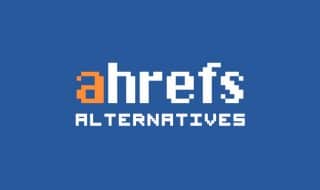
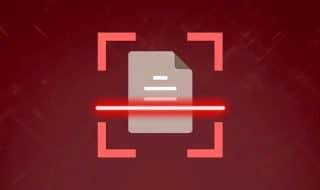
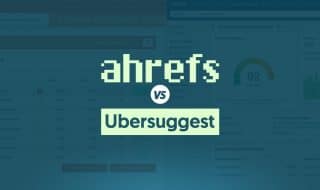
Comments